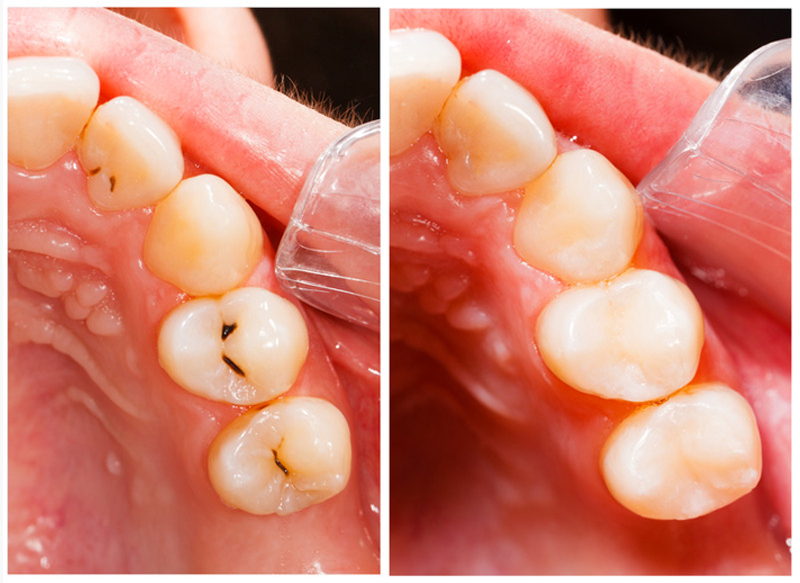When tooth decay threatens your oral health, dental fillings provide the essential restoration needed to preserve your natural tooth structure and prevent further damage. A dental filling charleston procedure eliminates harmful bacteria, seals vulnerable areas, and returns your tooth to full function and appearance. Acting quickly when decay is detected protects your investment in long-term dental health and prevents more complex treatments down the road.
At Simpson Dental PLLC, our comprehensive general dentistry services include advanced dental filling procedures designed to restore your smile with precision and care. With over 70 years of family dental tradition in West Virginia, our practice combines time-tested techniques with cutting-edge technology to deliver exceptional results for patients throughout Charleston and Charles Town.

Understanding Dental Fillings and Tooth Decay
Dental fillings are restorative materials used to repair teeth damaged by decay or trauma. When bacteria penetrate the tooth surface through weakened enamel, they create cavities that compromise your natural tooth structure. The dental filling procedure involves removing the damaged portion of the tooth and replacing it with a durable material that seals the area from further bacterial invasion.
Early detection of tooth decay is crucial for successful treatment. During regular checkups, we use advanced digital X-rays to identify cavities in their earliest stages. When caught early, dental fillings require minimal removal of healthy tooth structure, preserving more of your natural tooth and ensuring better long-term outcomes.
Left untreated, tooth decay progresses deeper into the tooth, potentially reaching the inner pulp and requiring more extensive procedures like root canal therapy. This progression not only compromises your oral health but can also lead to significant discomfort and more complex treatment requirements.
General and Family Dentistry Financing Available
Quality dental care for the entire family with flexible financing that makes comprehensive treatment accessible.

Types of Dental Filling Materials
Several different materials are available for tooth fillings, each offering unique advantages depending on your specific needs and preferences. At Simpson Dental, we provide various options to ensure optimal function and appearance for every patient.
Composite fillings represent the most popular choice for many patients due to their natural color and excellent bonding properties. These tooth colored restorations are made from composite resin that closely mimics the appearance and translucency of your natural teeth. Composite fillings bond directly to the tooth surface, providing excellent support while maintaining an aesthetically pleasing result.
Amalgam fillings offer exceptional durability and longevity, particularly for back teeth that endure significant chewing forces. These silver-colored restorations have been used successfully for decades and continue to provide reliable service for many patients. While less aesthetically pleasing than tooth-colored options, amalgam fillings excel in situations where maximum strength is required.
Glass ionomer fillings provide a unique advantage by releasing fluoride over time, helping to prevent future decay around the restoration. These materials work particularly well in certain clinical situations and offer good biocompatibility with natural tooth structure.
For larger cavities that require extensive restoration, dental inlays and onlays may provide superior coverage and protection. These custom restorations are crafted in our on-site dental lab and offer exceptional fit and durability for more complex cases.
The Dental Filling Procedure at Simpson Dental
Our dental filling procedure prioritizes your comfort while ensuring thorough treatment of the affected area. We understand many patients experience dental anxiety, so we offer various comfort measures to help you feel relaxed during treatment.
The procedure begins with a comprehensive examination using our advanced diagnostic technology, including digital X rays to evaluate the extent of decay. This thorough assessment allows us to determine the most appropriate treatment approach and filling material for your specific situation.
Once we’ve confirmed a filling is necessary, we’ll administer local anesthetic to ensure complete comfort throughout the procedure. Our gentle injection techniques minimize discomfort while providing effective numbness for the treatment area.
Using precise dental instruments, we carefully remove all decayed material from the affected tooth. Our meticulous approach ensures complete elimination of harmful bacteria while preserving as much healthy tooth structure as possible. The area is then thoroughly disinfected and prepared for the filling material.
The selected filling material is then placed and carefully shaped to restore the tooth’s natural contours and bite relationship. For composite resin fillings, we use a special curing light to harden the material and create a strong, durable restoration. Throughout the process, we check your bite to ensure the filling feels natural and comfortable.
Advanced Technology and Precision Craftsmanship
Simpson Dental’s commitment to excellence extends beyond traditional dental care to include innovative technology and precision craftsmanship. Our on-site dental lab staffed with skilled technicians allows us to create custom restorations with exceptional accuracy and natural appearance.
We utilize laser dentistry techniques when appropriate, offering more precise treatment with reduced discomfort and faster healing times. This advanced technology enhances our ability to provide conservative, comfortable dental care while achieving superior results.
Our digital imaging capabilities provide detailed views of your tooth structure, enabling precise treatment planning and optimal restoration placement. This technology ensures we can detect problems early and address them with minimal intervention.
Caring for Your Dental Fillings
Proper care after receiving dental fillings ensures long-lasting results and continued oral health. Most patients experience only minor tooth sensitivity immediately following treatment, which typically subsides within a few days as the tooth adjusts to the restoration.
Maintaining excellent oral hygiene remains essential for protecting both your fillings and surrounding teeth. Daily brushing with fluoride toothpaste and regular flossing remove harmful bacteria and food particles from around your restorations. Regular professional dental cleanings help maintain optimal oral health and allow us to monitor your fillings over time.
Avoiding excessive force on your restorations helps prevent damage and extends their lifespan. If you grind or clench your teeth, we may recommend a custom nightguard to protect your fillings and natural teeth from unnecessary wear.
Should you notice any issues with your filling, such as roughness, sensitivity, or changes in your bite, contact us promptly for evaluation. Early attention to minor problems prevents more serious complications and ensures continued comfort and function.
Frequently Asked Questions about Dental Fillings in Charleston, WV
What are the differences between composite fillings and dental amalgam?
Composite fillings are made from tooth colored materials that blend naturally with your smile, making them a popular choice for visible teeth. Dental amalgam, often called silver fillings, are more durable and typically used on back teeth where chewing forces are greater. While composite offers cosmetic advantages and preserves more healthy tooth structure, amalgam restorations tend to last longer and are less expensive. Your dentist will consider aesthetics, durability, and location when recommending dental materials for your restoration.
Are silver fillings still safe and commonly used today?
Yes, silver fillings, or dental amalgam, are still considered safe and effective for restoring teeth. They’ve been used in dental restorations for decades and are particularly valued for their strength and longevity in filled tooth areas that experience heavy chewing. While composite fillings are more aesthetic, amalgam remains a practical option for molars due to its durability. If you’re concerned about dental materials, your dentist can help you choose what’s best for your health and preferences.
What are indirect fillings, and when are they recommended?
Indirect fillings are custom-made dental restorations like inlays and onlays that are created in a dental lab and then bonded to the tooth. They’re recommended when a cavity is too large for a traditional filling but the tooth doesn’t need a full crown. These restorations help conserve healthy tooth structure while covering more of the tooth surface. Indirect fillings are typically made from durable tooth colored materials and can provide a strong, long-lasting result when composite or amalgam fillings aren’t enough.
How do I know if I need a dental filling?
You may need a dental filling if you experience tooth sensitivity, visible holes, or discomfort when biting. However, cavities can often develop silently, which is why regular exams are essential. If your dentist detects decay early, a small filling using composite or dental amalgam can restore your tooth with minimal impact to healthy tooth structure. Treating decay early helps avoid more invasive procedures and ensures your filled tooth continues to function properly.
What is the lifespan of different types of tooth fillings?
The longevity of your tooth fillings depends on the dental materials used and how well you care for them. Amalgam restorations often last 10 to 15 years or more due to their strength, especially on back teeth. Composite fillings generally last 5 to 10 years but may require replacement sooner due to wear. Indirect fillings made from porcelain or similar tooth colored materials can last even longer with good oral hygiene and regular dental visits to protect your restored tooth surface.
Why Choose Simpson Dental PLLC for Dental Fillings
When you need dental fillings in Charleston or the surrounding West Virginia area, Simpson Dental PLLC offers the experience, technology, and personalized care you deserve. Our family dental practice has been serving the community since 1948, building a reputation for exceptional care and lasting patient relationships.
Our approach to dental care focuses on treating the mouth as part of your overall health, ensuring your oral wellness supports your general well-being. With three generations of dental excellence and a team of skilled professionals, we combine traditional values with modern innovation to deliver superior results. Our in-office dental lab and advanced technology allow us to provide efficient, high-quality care often completed in a single appointment today.
Contact Simpson Dental PLLC at (304) 342-6162 or use our convenient contact form to schedule your dental filling consultation and experience the difference personalized, professional dental care makes.

Meet Your Charleston Dentists
When you choose Simpson Dental, you’re choosing a team with three generations of experience serving Charleston, WV. Our doctors combine advanced training with a genuine commitment to patient care.

Dr. Mark W. Simpson, DDS
Dr. Mark Simpson continues the family tradition his father, Dr. Bob, established in 1948. With decades of experience and a commitment to the highest quality care, Dr. Simpson has built a reputation for excellence throughout Charleston.

Dr. Christen Simpson Raynes, DDS, MBA
As a third-generation dentist and one of the Top 25 Women in Dentistry, Dr. Christen brings advanced expertise and modern techniques to the practice. She combines her grandfather's and father's legacy with cutting-edge technology.

Dr. Chase Preston, DDS
Dr. Preston joined our team to provide exceptional care while maintaining the personal, family-focused approach that sets Simpson Dental apart.
Hear From Our Patients
Don’t just take our word for it. See what patients throughout Charleston are saying about their experience with Simpson Dental.
Explore Our Complete Dental Services
Simpson Dental offers comprehensive dentistry for patients throughout Charleston, WV. From preventive care to advanced restorative procedures, our three-generation practice delivers exceptional results.
- General Dentistry
- Cleanings
- Gum Disease Treatment
- Tooth Extractions
- Dental Botox & Fillers
Visit Us!
Conveniently located in Charleston, West Virginia, Simpson Dental has been serving our community since 1948. Our state-of-the-art facility features the most advanced dental technology in the state, including an on-site dental lab for same-day solutions.
Our central Charleston location makes it easy for patients throughout the Kanawha Valley to access exceptional dental care. We serve patients from Cross Lanes, South Charleston, Dunbar, St. Albans, Beckley, Fayetteville, Lewisburg, and surrounding communities. We also welcome patients from the Huntington area and nearby Ashland, Kentucky, who travel to Charleston for our specialized services and same-day solutions.
